The #1 Best Supplement For Your Brain, According to a Doctor
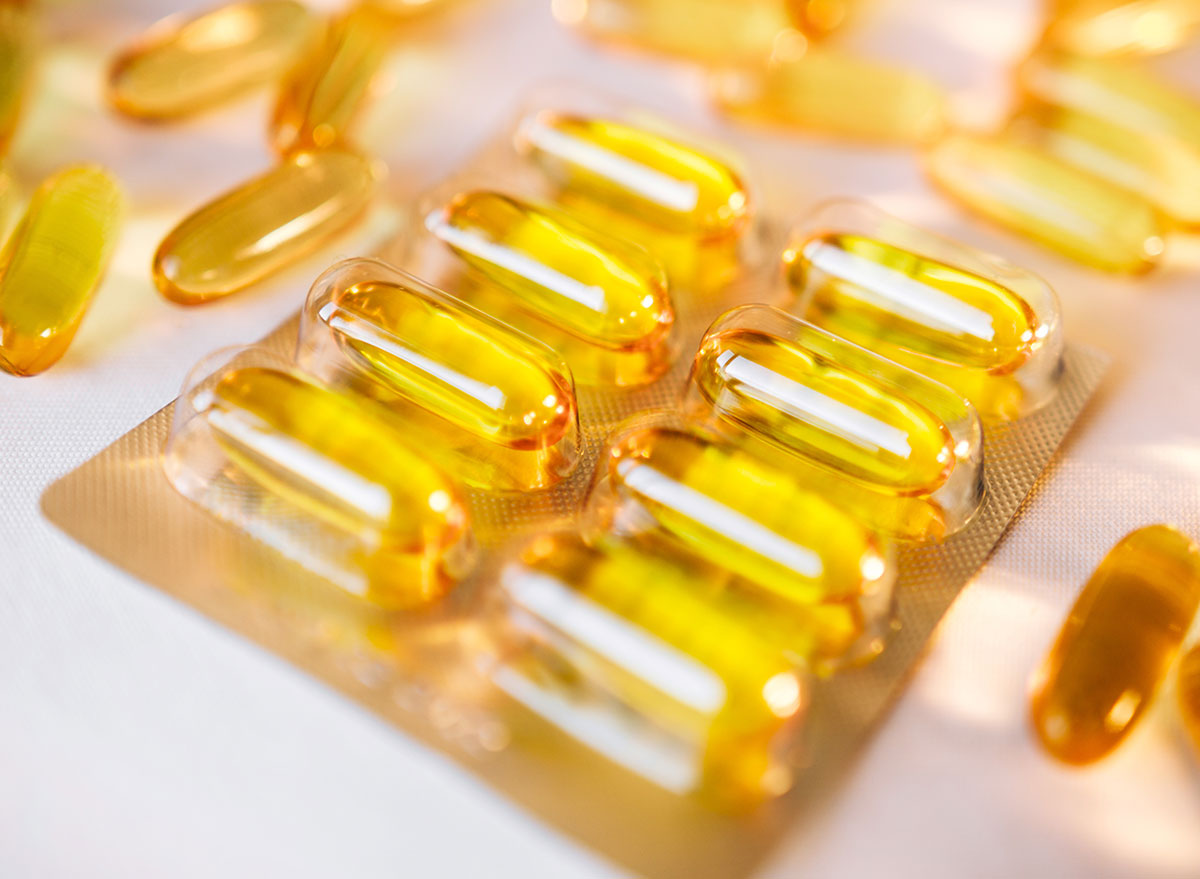
What’s good for the body is good for the brain. For example, getting lots of exercise, reducing stress, going easy on the alcohol, and not smoking are all no-brainer brain boosters that you’ve heard about. But what has been getting more attention these days is the surprising connection between your gray matter and your diet.
“The nutrients from food influence chemicals that directly and indirectly affect your brain and in turn change the way you think and feel,” says nutritional psychiatrist, Uma Naidoo, MD, a professional chef, nutrition expert, and author of the book This Is Your Brain on Food. In other words: food can influence your mood—in big ways.
Do you know serotonin, the neurotransmitter that helps regulate mood, happiness, and anxiety? Ninety percent of it is actually produced in your gastrointestinal tract rather than your brain, a statistic that underscores the importance of your diet and digestive system on your cognitive health. As director of nutritional and lifestyle psychiatry at Massachusetts General Hospital, Dr. Naidoo is at the forefront of the growing field of nutritional psychiatry that is recognizing the essential roles that bacteria making up your intestinal microbiome play in brain health and mediating your mood and cognitive function.
While Dr. Naidoo says eating a healthy whole-food diet is the best path to a healthy brain, she believes dietary supplements have a place at the table, too. The best supplement for your brain is one that includes nutrients that she calls “the low-hanging fruit”: nutrients that are harder to get through your daily diet.
Deficiencies depend on your diet, so there is no single best supplement for your brain that will work for everyone. For that reason, we asked Dr. Naidoo about the most common brain-boosting nutrients in which many people may be deficient. To find out if you are lacking, she recommends asking your doctor about blood tests that can identify low levels of these nutrients before taking supplements. Read on, and for more on how to eat healthy, don’t miss 7 Healthiest Foods to Eat Right Now.
Vitamin D
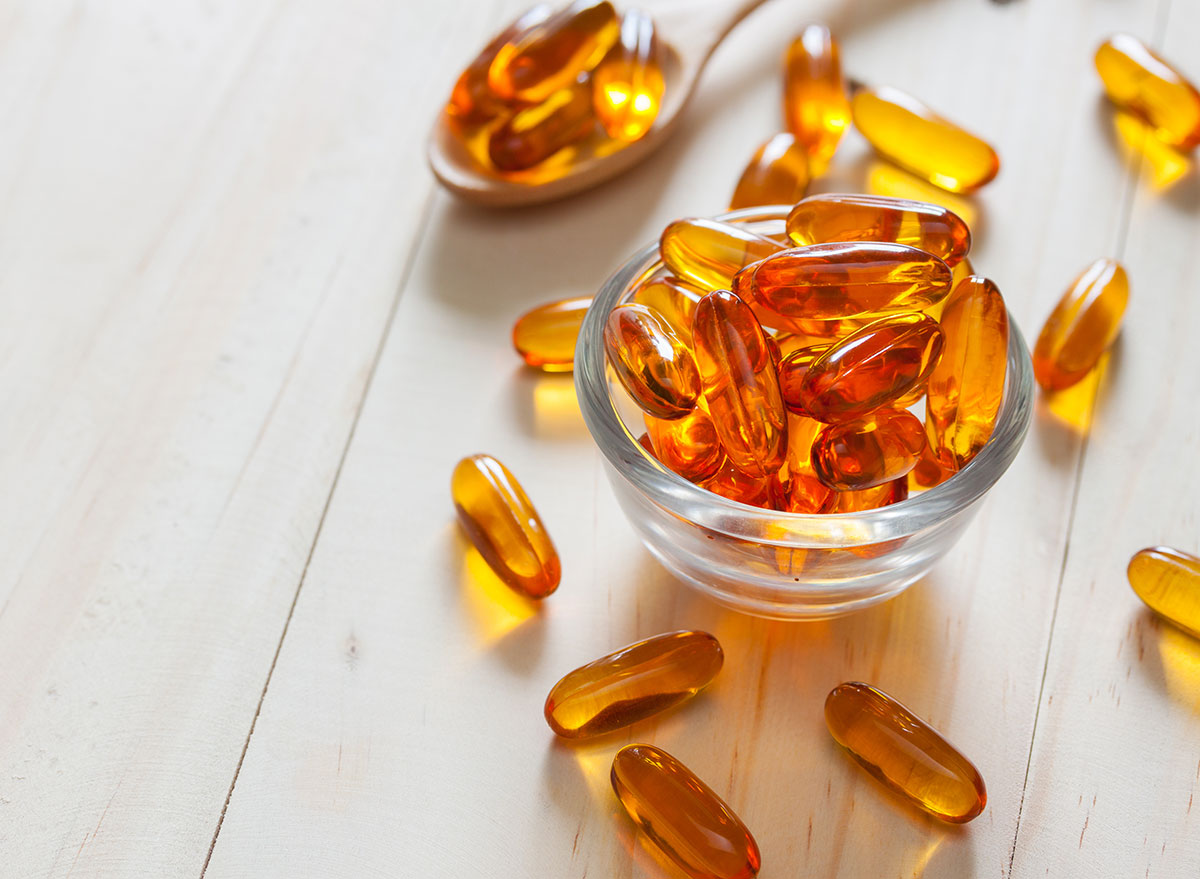
The fat-soluble vitamin famed for supporting strong, dense bones acts as a neuro-steroid; it helps decrease inflammation and controls the release of nerve growth factor (NGF), which is essential for the proper function of neurons in the hippocampus, the area of the brain responsible for learning and memory.
“There are many people who are deficient in vitamin D, especially those who live in the far northeast like I do where the climate and the level of sunshine affect vitamin D levels,” says Naidoo. Outside of vitamin D fortified foods like milk, it can be difficult to get enough of the vitamin, so she recommends supplements due to their relationship to mood and anxiety disorders. “We’re not exactly sure how it works, but it adjusts brain chemistry,” she says. “It may increase certain neurotransmitters like dopamine.”
READ MORE: The #1 Best Vitamin D Supplement to Take, Says Dietitian
Magnesium
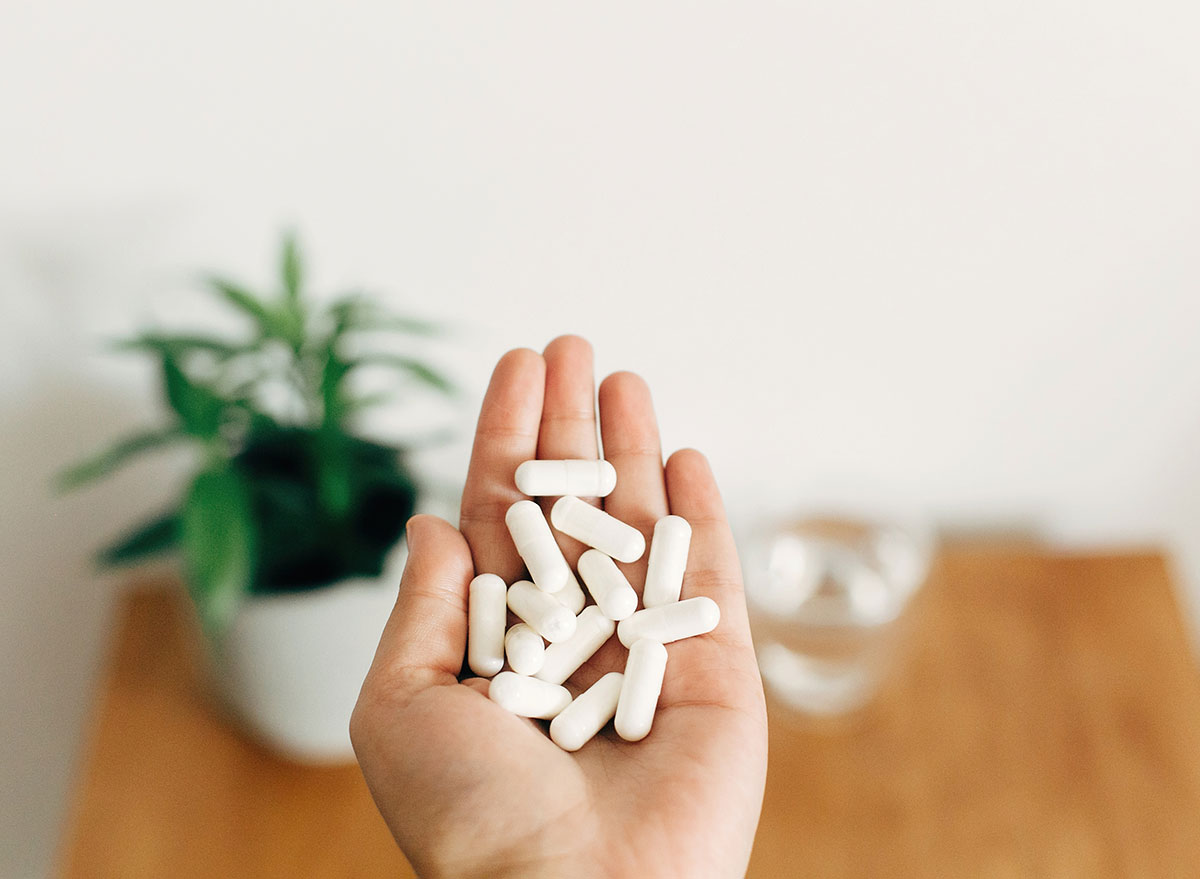
“This mineral is involved in 300 biochemical reactions in the body, including mood regulation and sleep,” says Naidoo. It’s on her list of “low-hanging fruit” supplements for people suffering from anxiety.
Research suggests a magnesium deficiency is associated with anxiety disorders, ADHD, fatigue, and low libido. Naidoo advises asking your doctor about the best type of magnesium supplement for your anxiety because some over-the-counter magnesium supplements can give you diarrhea since magnesium supplements are often used for constipation.
RELATED: Sign up for our newsletter to get daily recipes and food news in your inbox!
Omega 3 Fatty Acids
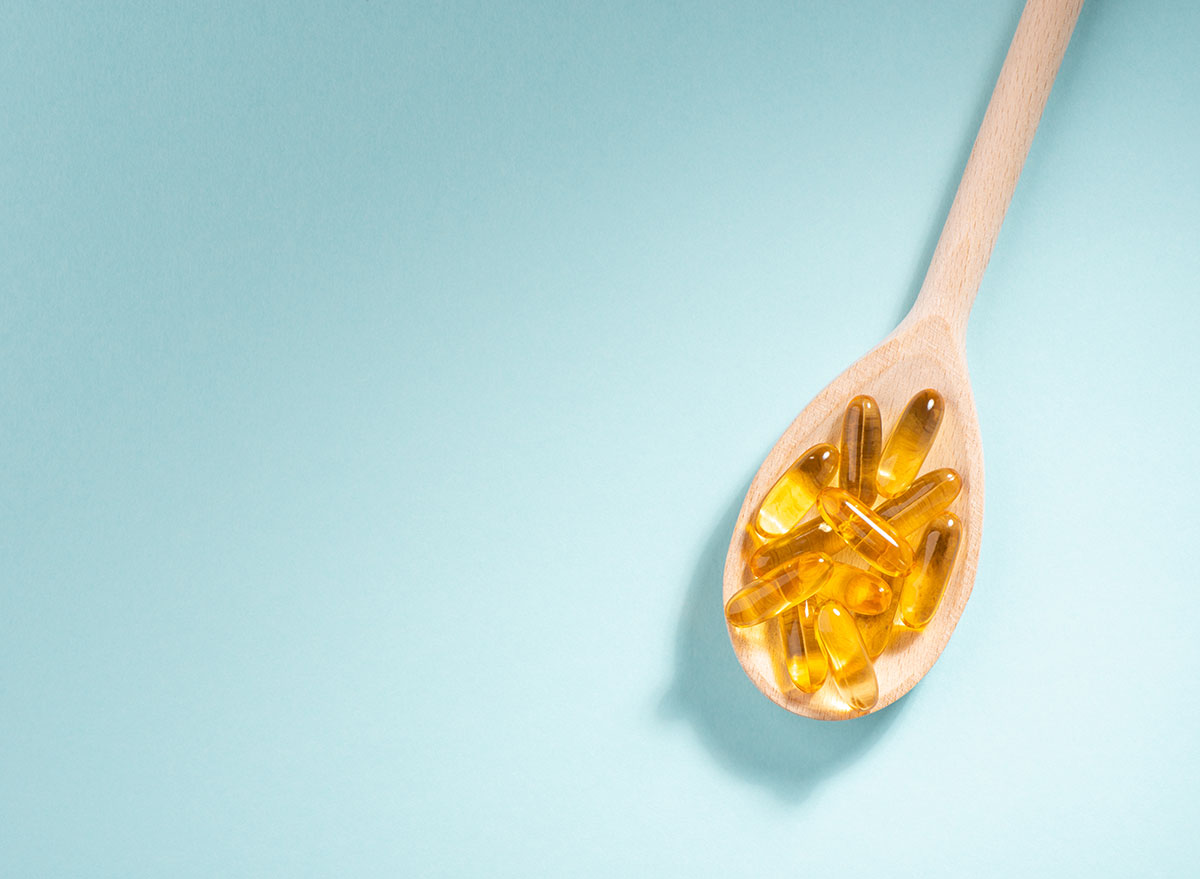
There are three main types of omega‑3 fatty acids: the plant-based alpha-linolenic acid, and the two found in fish oil, eicosapentaenoic acid (EPA), and docosahexaenoic acid (DHA). EPA and DHA are critical to your heart and head.
“Omega-3s promote brain health by lowering inflammatory markers and protecting neurons from excessive inflammation,” says Naidoo.
Scientific studies have demonstrated that dementia patients have low omega-3 levels and that taking supplements may help protect the brain and delay cognitive decline. In her book, Naidoo cites a 2016 meta-analysis of 13 randomized controlled trials of 1,233 patients with major depressive disorder that showed the beneficial effects of fish oil, especially in participants taking higher amounts of EPA and in those also taking antidepressants.
Saffron
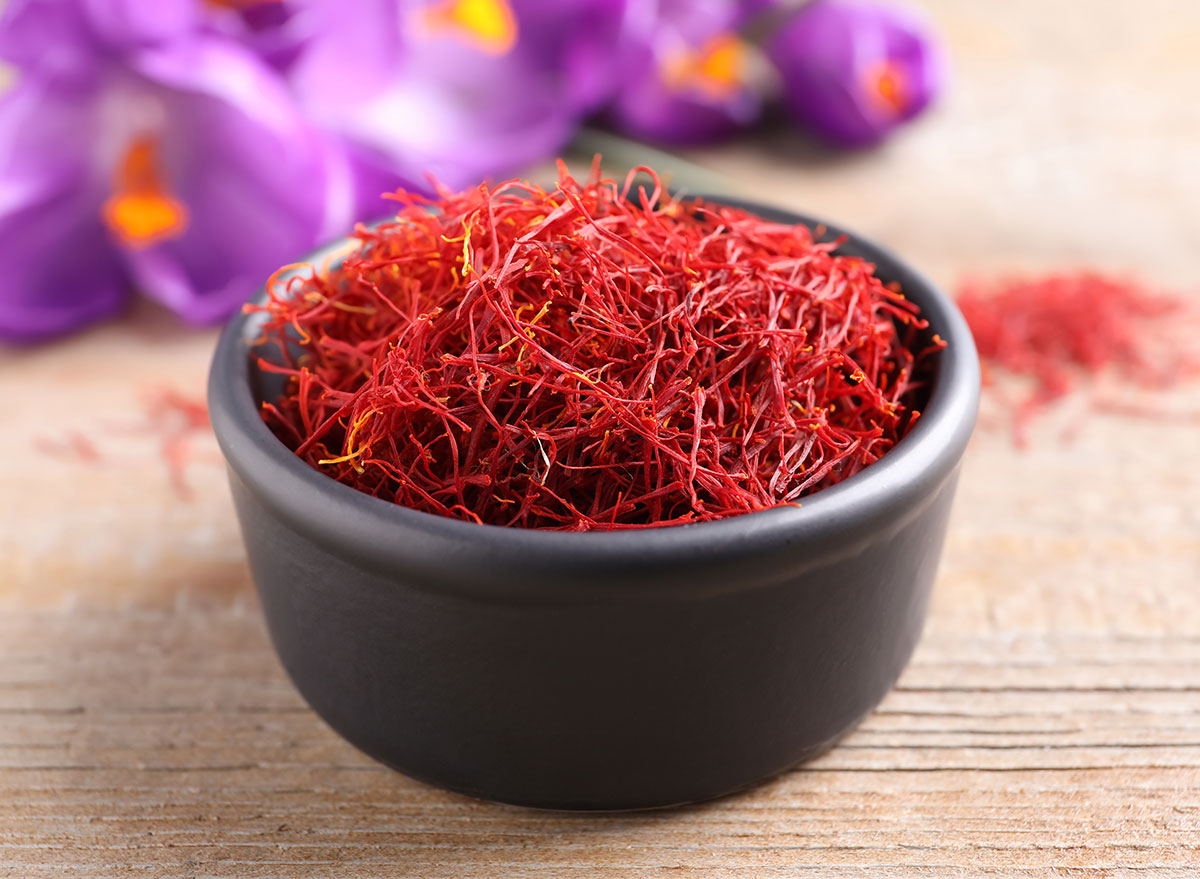
The highly prized spice used in the Mediterranean, Asian, and Moroccan dishes has been shown to be helpful in improving symptoms of depression and reducing the neurodegeneration that causes Alzheimer’s disease. Some small clinical trials suggest that 30 mg saffron supplements given daily for six weeks may be as effective as common antidepressant medications, known as SSRIs (serotonin reuptake inhibitors). But you won’t get a therapeutic dose from a few crimson threads of the expensive seasoning, says Naidoo. Saffron supplements are much less expensive and concentrated to get the level you need.
If you’d like to try boosting your brainpower with food before trying supplements, check out these articles next: